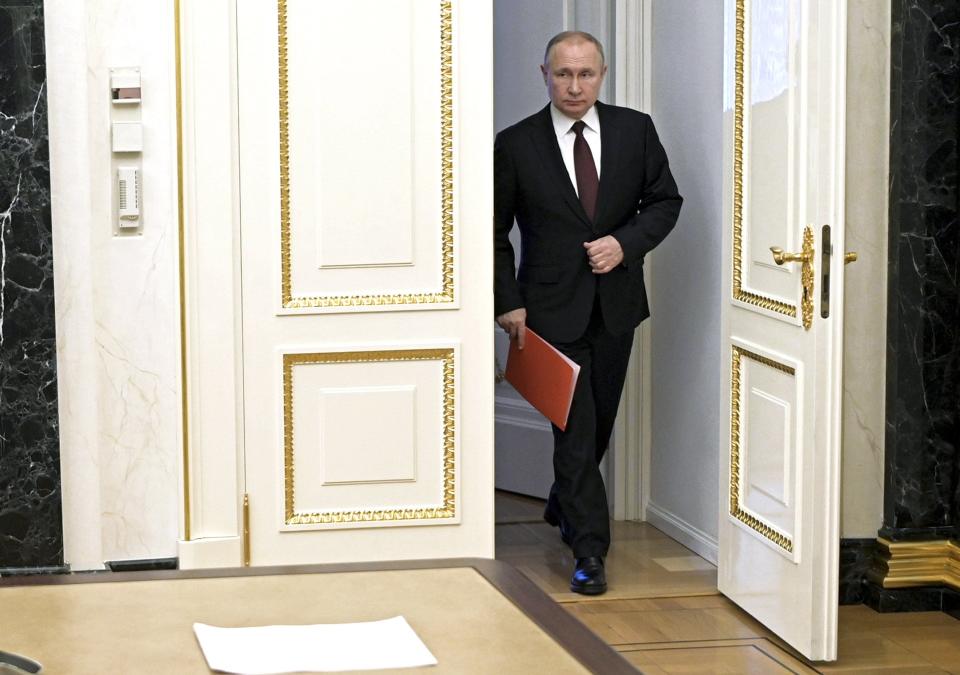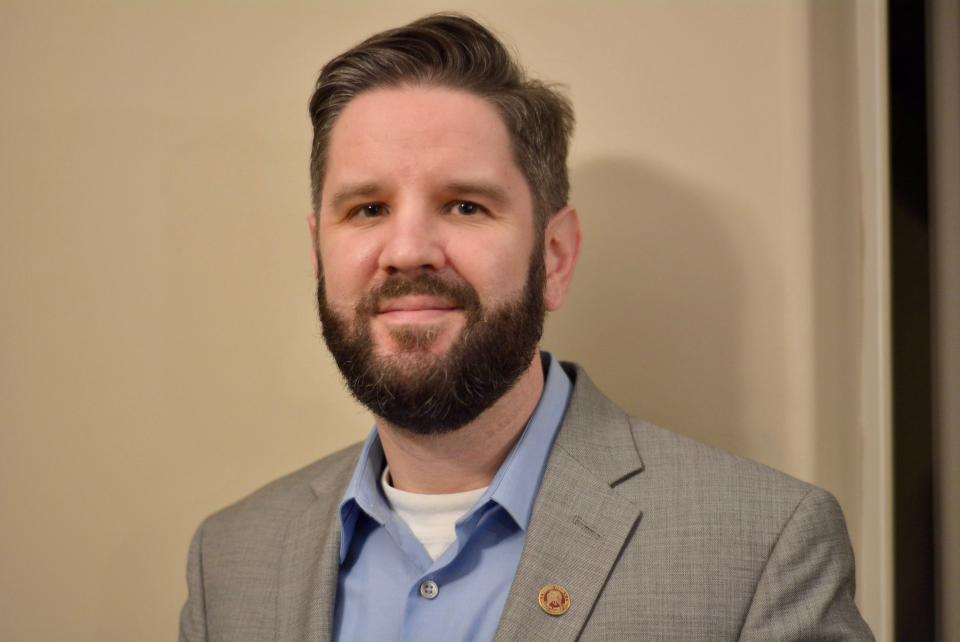Putin’s imperial ambitions against Ukraine and other nations are ahistorical | Opinion
- Oops!Something went wrong.Please try again later.
When Vladimir Putin gave the order for his military to cross into Ukrainian territory, discussions within the U.S. that had long been focused on whether or not he would invade a sovereign country pivoted quickly to figuring out why, exactly, he did ultimately decide to launch the largest assault on European soil since World War II.
Unsurprisingly, the political climate that has defined our very recent past has driven much of what is being said in the media and has often presented this war as one for which “the other side” is somehow responsible.
As a professor of history, I have urged my students to ignore such arguments for a few reasons.
Amongst my objections are that engaging in them removes blame from where it belongs – 100% on the shoulders of Vladimir Putin.
But more importantly because a close reading of Putin’s own words makes it quite clear that the immediate impetus of this war has little to do with the west and more to do with his imperial ambitions.
Hear more Tennessee Voices: Get the weekly opinion newsletter for insightful and thought provoking columns.
Here is Vladimir Putin's playbook
In the opening segments of his nearly hour-long address last week, Putin unveiled an ahistorical rant on Ukraine complete with a “stab in the back” myth to rival that deployed by Adolf Hitler in the wake of Germany’s World War I defeat.

In Putin’s version, modern Ukraine was “completely created by Russia” and, more specifically, by “Bolshevik Communist Russia.”
In a long list of grievances that begins with Vladimir Lenin, works its way through Josef Stalin and Nikita Khrushchev, and ends with late Soviet leadership, Putin assails the actors who allowed Ukraine to assert its independence in 1991 and steal the territory “given” to it from Russia.
More: Ukraine invasion is a wakeup call: How can we defend democracy if we are divided? | Opinion
Having no real tradition of statehood and governance, Putin argued, the illegitimate Ukrainian state worked to assume the trappings of democracy but festered internally from corruption until the “coup” of 2014 when “nationalist radicals” captured power from those supporting “constitutional law” (ex-President Viktor Yanukovych, a staunch Putin ally, is currently living in exile in Russia).
The country was propelled, headlong, into civil war and those who did not support the “radical nationalist movement” – some 14 million Russian speakers in the east, by Putin’s estimates – have been subjected to “genocide” ever since.
Sign up for Latino Tennessee Voices newsletter: Read compelling stories for and with the Latino community in Tennessee.
Sign up for Black Tennessee Voices newsletter: Read compelling columns by Black writers from across Tennessee.

Your state. Your stories. Support more reporting like this.
A subscription gives you unlimited access to stories across Tennessee that make a difference in your life and the lives of those around you. Click here to become a subscriber.
Who will Putin attack next?
With his speech, Putin laid the groundwork not so much for a fight against NATO and the west but rather a fight against history and a fight to save those he claims have suffered from it, people he says are “an inherent part of [Russia’s] history, culture, spiritual space.”
At the risk of spending too much time comparing Putin to Hitler, I will make only passing reference to the Sudeten Germans here. With Russia’s invasion now underway, though, many analysts have pondered over Putin’s next goal.
Nearly all talk has focused on the Baltic states of Estonia, Latvia, and Lithuania, ex-Soviet republics with significant ethnic Russian populations (around 25% in Latvia and Estonia). With a rebuilt “iron curtain,” the next logical step would be Kazakhstan, a country rich in natural resources currently being courted by Russia, China, and the west.

Like Ukraine, its borders were delineated by “Bolshevik Communist Russia,” carved out from lands of the Russian Empire. While Tokayev’s Kazakhstan has continued its friendly relationship, built during the Nazarbayev regime, with Putin’s Russia, the country has recently been rocked by unrest pushing for greater democratization and government transparency. At around 20%, it also boasts a slightly larger ethnic Russian population than Ukraine.
All this is to say that history is very much in play here and the musings of those who ignore it to focus instead on peripheral squabbles serve only to enable those who are truly responsible and blind us to what could come next.
Sean McDaniel, Ph.D., is a specialist in Russian and Soviet history and currently teaches at Cumberland University in Lebanon, Tennessee.
This article originally appeared on Nashville Tennessean: Russia invasion of Ukraine: Putin's imperial ambitions are ahistorical

